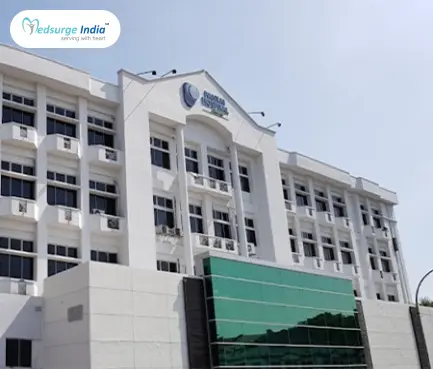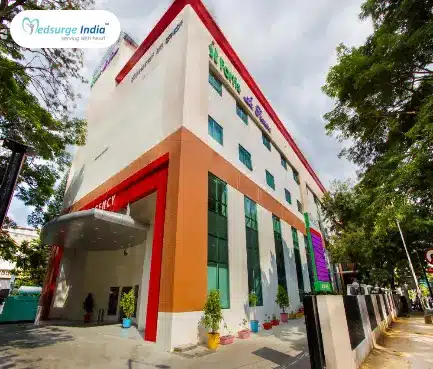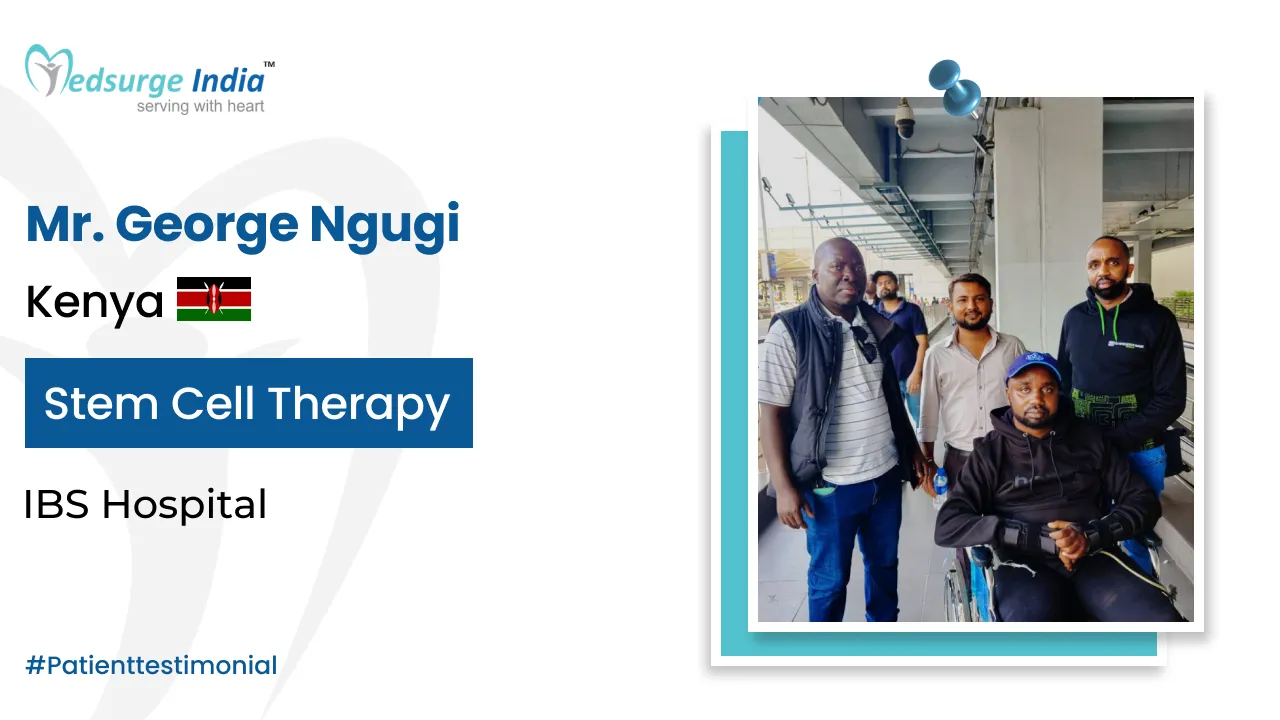
Irritable bowel syndrome (IBS) is a digestive system disorder. It refers to a set of symptoms affecting your large intestine that have no known cause. IBS is a widespread ailment that primarily affects women. IBS is more common in people who have a family history of it.
Irritable bowel syndrome (IBS) affects between 3% to 20% of individuals worldwide. Women are more affected than men by this illness. IBS can cause modest symptoms in some people. Others, on the other hand, have severe symptoms that interfere with their daily lives.
What is Irritable Bowel Syndrome (IBS)?
Irritable bowel syndrome (IBS) is a collection of symptoms that include abdominal pain and changes in bowel movements, which might include diarrhea, constipation, or both. You have these symptoms if you have IBS, but there are no obvious indicators of damage or disease in your digestive tract.
Irritable bowel syndrome (IBS) is a type of functional gastrointestinal (GI) disorder. Functional GI diseases, often known as disorders of gut-brain interactions, are caused by issues with the way your brain and gut interact. These issues might make your gut more sensitive and modify the way your intestinal muscles contract. You may experience more abdominal pain and bloating if your gut is more sensitive. Diarrhea and constipation are caused by changes in the way the muscles in your intestine contract.
Doctors used to refer to IBS by different names, such as:
- IBS colitis
- Mucous colitis
- Spastic colon
- Nervous colon
- Spastic bowel
There are four different types of IBS disease:
- IBS with constipation (IBS-C)
- IBS with diarrhea (IBS-D)
- Mixed IBS (IBS-M) alternates between constipation and diarrhea
- Unsubtyped IBS (IBS-U) for people who don’t fit into the above types
What are the Sign and Symptoms of IBS?
The common symptoms of Irritable bowel syndrome (IBS) are characterized by abdominal pain that is typically associated with bowel movements, as well as changes in bowel motions. Depending on the type of IBS you have, these alterations could be diarrhea, constipation, or both.
Other signs and symptoms of IBS include:
- Bloating the sensation of not having completed a bowel movement.
- Stool with yellowish mucus.
- Women with IBS often have additional symptoms during their periods.
IBS can be uncomfortable, but it does not cause additional health issues or harm to your digestive tract.
Your doctor will look for a trend in your symptoms over time to diagnose IBS. Irritable Bowel Syndrome is a chronic condition, which means it lasts for a long time, sometimes years. Symptoms, on the other hand, may come and go.
What are the Causes of Irritable Bowel Syndrome?
IBS is caused by an unknown factor, according to doctors. IBS is thought to be caused by a variety of issues, according to experts. IBS can be caused by a variety of reasons in different persons.
IBS and other functional gastrointestinal (GI) diseases are issues with brain-gut interaction, or how your brain and gut interact. Experts believe that issues with brain-gut contact may have an impact on how your body functions and contribute to IBS symptoms. Food may pass too slowly or too quickly through the digestive tract in some persons with IBS, causing bowel motions to alter. When a normal quantity of gas or stool is present in the gut, some persons with IBS may experience pain.
Certain issues are more common in IBS sufferers. These issues, according to experts, may have a role in the causing of IBS. Among the issues are:
- Some mental diseases, such as depression, anxiety, and somatic symptom disorder are caused by stressful or unpleasant early life events, such as physical or sexual abuse.
- bacterial infections in the intestines small intestinal bacterial overgrowth, which is defined as a rise in the number or type of bacteria in the small intestine food intolerances or sensitivities, in which particular foods produce digestive problems
- According to research, certain people are more susceptible to developing IBS because of their DNA.
How the diagnosis of Irritable Bowel Syndrome is done?
Doctors examine your symptoms, medical and family history, and perform a physical exam to diagnose irritable bowel syndrome (IBS). Doctors may perform testing to rule out other health issues in some circumstances.
Reviewing Symptoms
To diagnose IBS, your doctor will ask about your symptoms and search for a pattern in your symptoms. If you have abdominal pain and two or more of the following symptoms, your doctor may diagnose IBS.
- Your bowel movements are causing you agony. After bowel movements, for example, your pain may improve or worsen.
- You have noticed a shift in the frequency with which you have bowel movements.
- You notice a difference in the appearance of your stools.
Your doctor will enquire as to how long you have been experiencing symptoms. If you have IBS, your doctor may diagnose it.
- In the last three months, you had symptoms at least once a week, and your symptoms have been present for at least six months.
- Even if you had symptoms for a short period, your doctor may diagnose IBS. If your symptoms are similar to those of IBS, you should consult your doctor.
Get Free Cost Estimation
Procedure
What is the possible treatment for IBS?
Treatment for Irritable bowel syndrome (IBS) can be done with dietary adjustments and other lifestyle changes, as well as medications, probiotics, and mental health therapy. It’s possible that you will have to try a few different therapies to find the one that works best for you. Your doctor can assist you in determining the best course of action.
Dietary Habits:
Changes in your diet and other aspects of your lifestyle and also aids in your diet may aid in the treatment of your symptoms. One of the following adjustments may be suggested by your doctor:
- Consume more fiber and stay away from gluten
- Follow a particular diet known as the low FODMAP diet
Other lifestyle adjustments, according to research, may aid with IBS symptoms, including
- You should increase your physical activity
- Decreasing stress in your life to the greatest extent feasible
- Obtaining adequate sleep
Medicines:
- If you experience sadness and anxiety, as well as substantial stomach discomfort, your doctor may prescribe antidepressants.
- Diarrhea, constipation, and abdominal pain can all be relieved with the use of other medications.
- Probiotics might be a good choice for you. These “good bacteria” can aid in the alleviation of symptoms.
- If your symptoms don’t improve, go to your doctor. More testing may be required to determine whether the symptoms are caused by an underlying ailment.
Probiotics:
Probiotics may also be recommended by your doctor. Probiotics are live microorganisms, most commonly bacteria, that are comparable to the bacteria found in your digestive system. The use of probiotics to treat IBS is still being researched.
Before using probiotics or any other complementary or alternative medicines or practices, consult your doctor. If your doctor suggests probiotics, talk to him or her about how much and for how long you should take them.
Mental Health Therapies:
To aid with IBS symptoms, your doctor may suggest mental health therapies. IBS is treated with a variety of therapies.
- Cognitive-behavioral therapy (CBT) is a type of therapy that focuses on changing your thought and behavior patterns in order to alleviate IBS symptoms.
- Hypnotherapy for IBS symptoms, in which a therapist employs hypnosis (a trance-like condition in which you are calm or focused) to assist you to improve your symptoms.
- Relaxation training can aid in muscular relaxation and stress reduction.
Conclusion
Irritable bowel syndrome, or IBS, is a difficult condition to live with. Symptoms of IBS, such as stomach pain, diarrhea, gas, and bloating, can make life difficult. IBS, on the other hand, is manageable. Although there is no cure, diet and lifestyle adjustments can help control and improve symptoms. Talk to your doctor if you are having stomach problems that are not going away. You can find an IBS treatment plan that works for you by working together.
The Most Important Frequently Asked Questions
Q: What causes irritable bowel to flare up?
A: While we don’t know what causes IBS, we do know that food, caffeine, stress, carbonated drinks, artificial sweeteners, and viral diarrhea are all known to cause flare-ups. Your gut gets more sensitive to triggers as you have more IBS episodes.
Q: How long can irritable bowel last?
A: Irritable bowel syndrome (IBS) is a digestive disorder that affects many people. It causes stomach cramps, bloating, diarrhea, and constipation, among other things. These tend to come and go throughout time, lasting days, weeks, or even months at a time. It’s usually a problem that lasts a lifetime.
Q: Does IBS cause weight gain?
A: Irritable bowel syndrome (IBS) is a common gastrointestinal disorder that causes bloating, stomach pain, and constipation or diarrhea, among other symptoms. Some people with IBS have trouble controlling their weight. Weight loss or gain, on the other hand, is a rare symptom of IBS.
Q: Can a colonoscopy detect IBS?
A: Colonoscopy cannot diagnose Irritable Bowel Syndrome (IBS), but if your doctor feels you have IBS, he will perform one to make sure nothing else is wrong. The bowels of people with IBS appear to be sensitive and readily ‘upset.’
Q: Does IBS affect appetite?
A: Because IBS affects your gut, it’s only natural that its symptoms affect your appetite. Many IBS symptoms, such as stomach pain, constipation, or bloating, can make you feel a little off, and one of the most typical complaints of people with IBS is a loss of appetite when their symptoms flare up.
Top Hospitals for Irritable Bowel Syndrome Treatment in India
Top Doctors for Gastroenterology
Dr. Nikhil Anil Nadkarni
Associate Director
Experience: 24 years of experience
Max Superspecialty Hospital, Mohali
Mohali, India
Dr. Ashwath TG
Consultant
Experience: 9 years of experience
Sparsh Hospital (Yeshwanthpur) Bangalore
Bangalore, India
Dr. Abhishek Kathuria
Associate Consultant
Experience: 10 years of experience
Medanta – The Medicity, Gurgaon
Gurgaon, India
Dr. Mehul Choksi
Consultant
Experience: 16 years of experience
Nanavati Super Specialty Hospital Mumbai
Mumbai, India
Dr. Vedat Goral
Professor
Experience: 29 years of experience
Medipol University Hospital, İstanbul
Istanbul, Turkey
Dr. Amit Miglani
Senior Consultant
Experience: 11 years of experience
Asian Institute of Medical Sciences, Faridabad
Faridabad, India
Dr. K S Soma Sekhar Rao
Consultant
Experience: 12 years of experience
Apollo Hospitals, Greams Road, Chennai
Hyderabad, India
Dr. SK Sharma
Consultant
Experience: 7 years of experience
BLK Super Speciality Hospital, New Delhi
New Delhi, India
Dr. Purushottam Vashistha
Senior Consultant
Experience: 15 years of experience
Nanavati Super Specialty Hospital Mumbai
Mumbai, India
Dr. Dilip Todi
Senior Consultant
Experience: 37+ years of experience
Narayana Superspeciality Hospital, Shibpur, Howrah
Howrah, India



































































